Table of Contents
ലെക്ചറർ ഇൻ വൊക്കേഷണൽ എഡ്യൂക്കേഷൻ സിലബസ്
ലെക്ചറർ ഇൻ വൊക്കേഷണൽ എഡ്യൂക്കേഷൻ സിലബസ്: കേരള പബ്ലിക് സർവീസ് കമ്മീഷൻ ഔദ്യോഗിക വെബ്സൈറ്റായ @www.keralapsc.gov.in ൽ ലെക്ചറർ ഇൻ വൊക്കേഷണൽ എഡ്യൂക്കേഷൻ സിലബസ് പ്രസിദ്ധീകരിച്ചു. പരീക്ഷയ്ക്കുള്ള തയ്യാറെടുപ്പുകൾ ആരംഭിക്കാൻ സമയമായി. പരീക്ഷയിൽ വിജയിക്കുന്നതിന്, സിലബസിനെക്കുറിച്ച് വ്യക്തമായ ധാരണ ഉണ്ടായിരിക്കണം, അതിനാൽ ലെക്ചറർ ഇൻ വൊക്കേഷണൽ എഡ്യൂക്കേഷൻ സിലബസ് വിശദമായി വായിച്ച് മനസിലാക്കുക. ചുവടെ നൽകിയിരിക്കുന്നു ലിങ്ക് ഉപയോഗിച്ച് നിങ്ങൾക്ക് ലെക്ചറർ ഇൻ വൊക്കേഷണൽ എഡ്യൂക്കേഷൻ സിലബസ് PDF രൂപത്തിൽ ഡൗൺലോഡ് ചെയ്യാവുന്നതാണ്.
കേരള PSC ലെക്ചറർ ഇൻ വൊക്കേഷണൽ എഡ്യൂക്കേഷൻ സിലബസ് 2023: അവലോകനം
ചുവടെ നൽകിയിരിക്കുന്ന പട്ടികയിൽ കേരള PSC ലെക്ചറർ ഇൻ വൊക്കേഷണൽ എഡ്യൂക്കേഷൻ സിലബസ് 2023 സംബന്ധമായ എല്ലാ പ്രധാനപ്പെട്ട വിവരങ്ങളും ലഭിക്കും.
| കേരള PSC ലെക്ചറർ ഇൻ വൊക്കേഷണൽ എഡ്യൂക്കേഷൻ സിലബസ് 2023 | |
| ഓർഗനൈസേഷൻ | കേരള പബ്ലിക് സർവീസ് കമ്മീഷൻ |
| കാറ്റഗറി | പരീക്ഷ സിലബസ് |
| വകുപ്പ് | കേരള ജനറൽ എഡ്യൂക്കേഷൻ |
| തസ്തികയുടെ പേര് | ലെക്ചറർ ഇൻ വൊക്കേഷണൽ എഡ്യൂക്കേഷൻ |
| കാറ്റഗറി നമ്പർ | 370/2022, 371/2022 |
| സ്ഥിരീകരണം സമർപ്പിക്കേണ്ട തീയതി | 23 ജൂലൈ 2023 മുതൽ 11 ഓഗസ്റ്റ് 2023 വരെ |
| പരീക്ഷാ മോഡ് | വിവരണാത്മക മോഡൽ |
| ചോദ്യങ്ങളുടെ മാധ്യമം | ഇംഗ്ലീഷ് |
| മാർക്ക് | 100 |
| പരീക്ഷയുടെ സമയപരിധി | 2 മണിക്കൂർ |
| ഔദ്യോഗിക വെബ്സൈറ്റ് | www.keralapsc.gov.in |
Fill out the Form and Get all The Latest Job Alerts – Click here
ലെക്ചറർ ഇൻ വൊക്കേഷണൽ എഡ്യൂക്കേഷൻ പരീക്ഷാ പാറ്റേൺ 2023
ലെക്ചറർ ഇൻ വൊക്കേഷണൽ എഡ്യൂക്കേഷൻ തസ്തികയുടെ പരീക്ഷാ പാറ്റേൺ ചുവടെ ചേർക്കുന്നു.
| ലെക്ചറർ ഇൻ വൊക്കേഷണൽ എഡ്യൂക്കേഷൻ പരീക്ഷാ പാറ്റേൺ 2023 | ||
| ഭാഗം | വിഷയം | മാർക്ക് |
| ഭാഗം I | Community Engagement – Resources & Practices | 10 മാർക്ക് |
| Syllabus for General Subject ICT in Education | 10 മാർക്ക് | |
| PERSPECTIVES OF EDUCATION | 10 മാർക്ക് | |
| Teaching aptitude | 10 മാർക്ക് | |
| Research Aptitude | 10 മാർക്ക് | |
| ഭാഗം II | Vocational Education –Conceptual Framework | 10 മാർക്ക് |
| Vocational education Philosophical and Sociological Background | 08 മാർക്ക് | |
| Curriculum | 12 മാർക്ക് | |
| Vocational Teacher, Teaching Strategies, Methods and Techniques | 12 മാർക്ക് | |
| Measurement and Evaluation | 08 മാർക്ക് | |
ലെക്ചറർ ഇൻ വൊക്കേഷണൽ എഡ്യൂക്കേഷൻ പരീക്ഷാ തീയതി 2023
ലെക്ചറർ ഇൻ വൊക്കേഷണൽ എഡ്യൂക്കേഷൻ സിലബസ് PDF
ലെക്ചറർ ഇൻ വൊക്കേഷണൽ എഡ്യൂക്കേഷൻ സിലബസ് PDF ഡൗൺലോഡ് ചെയ്യാൻ, ചുവടെ നൽകിയിരിക്കുന്ന ലിങ്കിൽ ക്ലിക്ക് ചെയ്യുക.
ലെക്ചറർ ഇൻ വൊക്കേഷണൽ എഡ്യൂക്കേഷൻ സിലബസ് PDF
ലെക്ചറർ ഇൻ വൊക്കേഷണൽ എഡ്യൂക്കേഷൻ സിലബസ് 2023
ലെക്ചറർ ഇൻ വൊക്കേഷണൽ എഡ്യൂക്കേഷൻ തസ്തികയുടെ വിശദമായ സിലബസ് ചുവടെ ചേർക്കുന്നു.
PART I: General Subject (50 Marks)
Module 1: Community Engagement – Resources & Practices
Unit 1: Community Resources
- Resources that enhance or facilitate the lives of people in a community, Examples of community resources are factories, educational institutions, cinema halls, libraries, religious places, hospitals, community centers, parks, etc make use of these resources in education as it develops a sense of value and belonging among students.
Unit 2: Community Engagement
- Community Engagement in Education and symbiotic relationship that exists between communities and Education Institutions sustainable networks, partnerships, communication media, and activities Linking formal learning and the local community
Unit 3: Forms of community engagement
- Communitystudent engagement Researching with the community, sharing knowledge with the community, Designing new curricula and courses, Involving local practitioners as trainers, Social Innovation by students and the like
Unit 4: Practices for Community Engagement
- Engagement practices and activities formal or informal include building relationships through collaboration initiatives, community campaigns, Community Surveys, Community services, Excursions, cooperatives, small businesses, consultation meetings & conferences, sports events, cultural events, community development, and community research projects.
Unit 5: Rural Community Development
- Social, economic, political, and cultural framework of the rural society Rural Resilience Rural Institutions Close to Community, Participatory Learning Approaches and Methods, Community Project Proposals and Project Management, Community living camps, Engagement with School, Street Committee, Health Centre, Panchayat, SHGs Programmes
Module II: Syllabus for General Subject ICT in Education
Unit 1: Potentials of ICT in Education
- ICT as a means to connect with the world – Pedagogy and ICT – Potentials and Advantages of Approaches to ICT
Unit 2: ICT integration in Curriculum transaction
- Computer-based Curricular planning ICT Based Model of Curriculum Transaction Considerations for integrating ICT – Innovations in Curriculum Transaction
Unit 3: ICT and Internet Resources for Teaching and Learning
- Resources – Access and Creation, resource mobilization – Web based learning, Social Networking –Virtual learning Environment Designing initiatives
Unit 4: ICT in Classrooms
- Creating Personal learning environments ICT integrated Inclusive education Assistive and Adaptive technologies
Unit 5: ICT for Assessment and Evaluation
- Purposes and Techniques of Evaluation, Scope of ICT for evaluation innovative Practices in Assessment & Evaluation
Module 3: Perspectives of Education
Philosophical Psychological and Sociological Perspectives of Education
Philosophical Perspectives of Education
- Role of education in philosophizing the issues of life –Metaphysics, Epistemology, Logic, Phenomenology, Aesthetics and Axiology. Critical appraisal of schools of philosophy in the context of the Twenty-First Century– aims, content, methods, and ongoing changes.
- The focus of education in the 21st century. Building perspectives on educational philosophies, Modern schools of Philosophy Empiricism, Positivism, Relativism. Post structuralist views and eclectic views. Comparative study of philosophies and educational contributions of Indian and Western thinkers
Psychological Perspectives of education
- Learning and development Learner Characteristics and Learning styles with special reference to pre primary, primary, secondary, higher secondary and adult learners Learning in twenty-first century classrooms., Characteristics And types, Development – language development, emotional, moral, motor and identity development. Cognitive FunctionsThinking, Reasoning, Problem Solving and Metacognition, Personality types characteristics and development
- Intelligencedifferent types~ Multiple, Cultural, social, and emotional, impact on learners. Mental Health, Factors Affecting Mental Health (parents, family environment, society, school practices) Strategies for enhancing Mental health
Sociological Perspectives of Education
- Education for social security, wellness and progress, sustenance and transformation in society. Determinants of social change in the context of globalization.Constraints on social change in India with respect to caste, ethnicity, class, language, religion, gender, regionalism, and political interest.
- Education and Secularism Role of teacher in inculcating democracy and international values. Pluralism – Role of education in creating unity in diversity Nationalism and education.Role of Education in addressing cultural lag, privatization, globalization and partnership in social progress – Current trends in social development and transformation of values in society.
Module 4: Teaching Aptitude
Teaching aptitude
- Teaching characteristics, levels, phases, and maxims
- teaching methods, techniques, and strategies
- modern trends in professional development and ethics
- technology integration in Education
- Research, evaluation, and innovations in classroom teaching,
Module 5: Research Aptitude
• Research Meaning, Characteristics, and Types
• Steps to Research
• Methods of Research
• Aims of Educational Research
• Research Ethics
• Research paper, Article, Workshop, Seminar, Conference and Symposium
• Thesis writings – its characteristics and Format
PART II
Unit 1: Vocational Education –Conceptual Framework
- Meaning –Nature and scope Aims and objectives –Modern trends in Vocational educationcareer guidanceWork experience Emergence of Vocational Education System Features of vocational education programme in India,Principles of Vocational education, dynamics of Vocational Education Universalisation of vocational education. Traditional Vocational Education and Reforms in the current context.
Unit 2: Vocational Education Philosophical and Sociological Background
- Historical backgroundDevelopment – Gandhiian concept vocational aims of Education. Philosophical and sociological aims and aspects of Vocational Education. Principles of Vocational Education Psychological and Economic perspective of vocational Education. Vocational Education and National Development. Programs in India
Unit 3 Curriculum
- Curriculum –meaning Nature and scope – Modern Trends and approaches in curriculum construction types of curriculum Need Based curriculum Competency-based curriculum, Implementation strategies.
Work experience Pre vocational Education, Life skill EducationVocational guidance – Career guidance, curriculum for special needs national curricular design. - Learner-centered curriculum transaction on the job trainingApprenticeship training.
- Curriculum and Instructional Materials, school industry linkage
- Vocational Education at Different Levels in school Education Vocational coursesGeneric vocational courses
- Features of Vocational Education in NCF 2005, NEP 2020.
- Major constraints in the implementation of the Vocational Education Programme in India
Unit 4: Vocational Teacher, Teaching Strategies, Methods and Techniques
- Various systems and approaches of vocational education, Vocational educational institutions Accredited institutions, and Vocational courses, vocational school models, General school Model
- Nonformal vocational education Lifelong Learning
- Teaching methods, strategies and techniques, Skills in Teaching
- Teacher-related factors, quality concerns and issues. Teacher training Programmes in vocational Education. Innovative methods in preparation of Vocational Teachers in Teacher Training Programmes
- A learner with special Education Need Group work, Cooperative learning Facilitation of LearningVocational Education through Open and Distance Learning. Skill based coursesPractical training.
- ICT integration and adaptability in Vocational Education Web-based Learning
- The changing demands of Vocational Education in the 21st century.
- Challenges to vocation education. Equality and relevance Girls, women, SC/ST, Religion, and Ethnic minorities
- Multi-skilling and competency-based TrainingDigital LibraryLifelong learning E–learning.
- Innovative methods in preparation of vocational Teachers.
Unit 5. Measurement and Evaluation
- Evaluation strategies and techniques, Test construction and standardization, Different types of tests Assessment Grading Meaning Nature and Types Rubrics, portfolio, Individual Assessment, Skill based evaluation – Beyond Grading.
- Annual, Semester, and Modular Approaches
- Innovations of Need assessment of Vocational courses and skills




